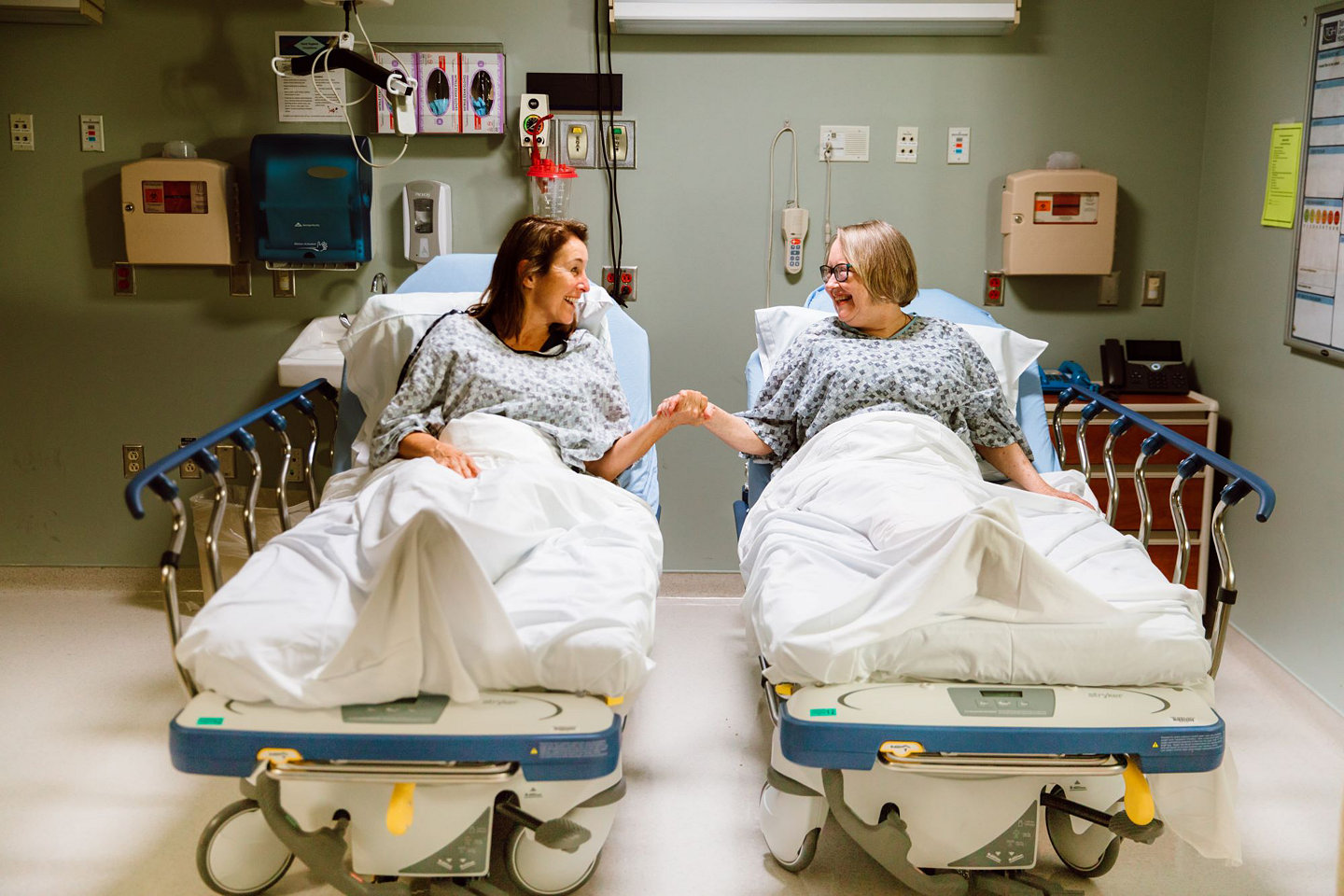Stryker presents...
Caregiver Stories
Some people are just destined for greatness
They’re the nurses patients can never forget, the caregivers colleagues aspire to emulate, and the men and women who go above and beyond for their patients, giving of themselves in countless ways. They’re superheroes in scrubs, and we want to honor them for the incredible and inspiring work they do each and every day.
We plan to feature several amazing caregivers as part of our Caregiver Stories series, and – as a thank you for their time – will make a nominal donation* to a nonprofit of their choice that aligns with their story. Help us identify these unique nurses – these diamonds in the rough – so we can shine a light on them.
Meet the Surgical ICU team at Temple University Hospital,
bound by unspeakable trauma and miraculous healings
The streets of north Philadelphia are no strangers to poverty and violence. Inside Temple University Hospital’s Level 1 Surgical ICU, a dedicated team of nurses see it all. Driven by empathy, compassion, grit and determination, these exceptional caregivers face trauma after trauma head on – advocating for their patients and strengthening their community, one patient at a time. Through their shared experiences of tremendous grief, miraculous recoveries, and everything in between, this unit has become a family and forged unbreakable bonds. This is their story.
"My life experiences with personal trauma make me a better nurse. I can relate to my patients and their families on a different level because I’ve been there.”
– Ann Lindley, RN, Temple University Hospital
Nominate a heroic healer today
Throughout the year we will select the stories of several standout nurses to feature in our Caregiver Stories series.
We know all caregivers are amazing. Please be sure to include what truly sets your nominee apart from all the other incredible caregivers out there.
Meet our other honorees ...
Meet Klisa Hargrove-Loper,
who turned tragic loss into inspiring hope
“Klisa is love. She’s love wrapped up in one person.” That’s how AtlantiCare nurse Marisol Ramos describes her dear friend and colleague, Klisa Hargrove-Loper, DNP, CRNA, APN. As her family and friends can attest, caregiving is engrained into everything Klisa is and everything she does. She’s a CRNA in an out-patient surgery center and trauma unit – the “eyes and ears of the OR.” She’s a mom. A wife. A mentor. A friend. And when she lost her mother to breast cancer in the middle of the pandemic, she took her pain and channeled it into something truly inspiring.
"With everything that she has been through in the past year … she stayed true to her calling. She never even took two seconds to say, ‘Why me’? Her whole philosophy is ‘What can I do to help someone else’”?
– Marisol Ramos, RN
Meet Pam Mizerany,
who gave the gift of life to her friend and fellow nurse
When Pam Mizerany, RN, learned that one of her best friends and fellow nurse at Tampa General Hospital, Debbie, was in dire need of a life-saving kidney, she immediately raised her hand to help. Fortunately for Debbie, the pair of friends were a perfect match. Hear more about Pam and her selfless act, and the deep bond that exists between them that allowed both to continue doing what they love: caring for their patients.
"It means everything, this gift of life that she graciously gave to me – and wouldn’t take no for an answer. It means everything because [without Pam] I don’t even know if I would even be here.”
– Debbie Ismer, RN

Pam Mizerany, RN and Debbie Ismer, RN
Meet ICU nurse James Bamber,
who personifies selflessness and sacrifice
In March 2020, COVID-19 arrived in Baton Rouge, LA. Ochsner Medical Center ICU nurse James Bamber and his wife Katie Bamber – also a nurse and in her third trimester with the couple’s fourth child – knew they had to do something drastic to keep their patients and family safe from the virus. Together, they made a decision that would leave an indelible mark on their family: James would move in with his sister until their son was born, and – for the first time in their marriage – he wouldn’t be able to be present for the birth. As James told us, “It’s a small sacrifice to make compared to what our patients and their families are going through.” Thank you, James and Katie Bamber, for your selflessness and sacrifice, sense of purpose and your perspective. The world is a brighter place with caring and compassionate nurses like you in it.
"James' story is everyone's story. James' story is unique in the sense that he went through having a new child in the middle of this."
– Eric Rogers, ACNP
Meet Judy Gay,
the “Wonder Woman of Pediatrics”
Although on paper Judy Gay, NP, retired from a decades-long career in nursing in 2019, she’s never stopped visiting and advocating for the chronically ill children who were under her care at Beverly Knight Olson Children’s Hospital, Navicent Health in Macon, GA. Dr. Edward Clark, one of the doctors Judy worked closely with for many years, said it best: “Judy is the wonder woman of pediatrics.” We couldn’t agree more. Thank you, Judy, for all that you’ve done and all that you’ll continue to do for these children and their families.
“Judy took the care we had to offer in the ICU and made it available to these kids at home. When there was no system existing to do that, Judy was the whole system.”
– Dr. Lowell Clark
Stryker Medical is not a business associate as that term is defined by The Health Insurance Portability and Accountability Act of 1996 (“HIPAA”). Please do not provide any Protected Health Information, as such term is defined by HIPAA.
